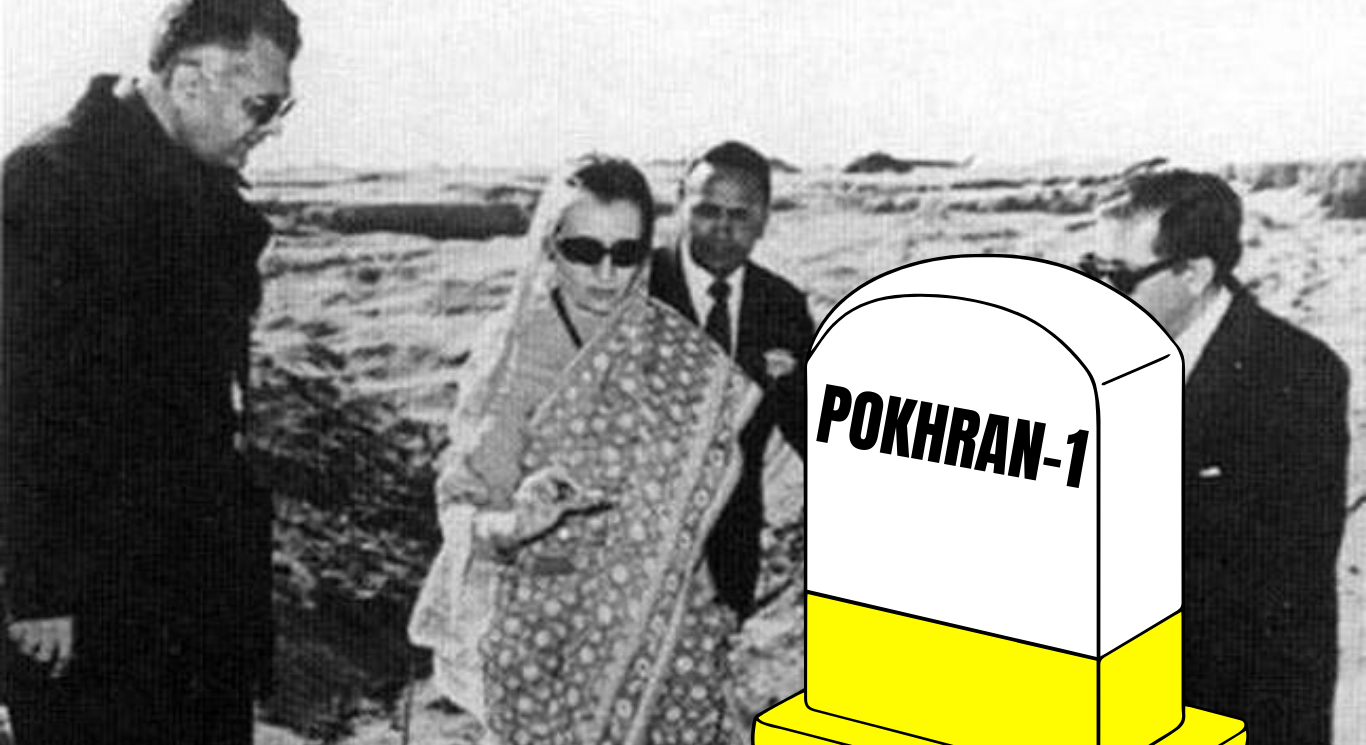On this day in 1974, i.e. May 18, India conducted its first landmark nuclear tests in Pokhran, Rajasthan, as part of the ‘Smiling Buddha’ operation. The event was shrouded in secrecy until it actually occurred, as many major world powers at the time were trying to prevent the proliferation of nuclear weapons.
Then Prime Minister Indira Gandhi described the test as a “peaceful nuclear explosion,” likely to calm the international community, particularly the permanent five members of the United Nations Security Council (P-5): the United States, the United Kingdom, France, China, and Russia.
Why Did India Decide To Go For Nuclear Tests?
India chose to conduct nuclear tests for several reasons. India perceived the NPT as unfairly favoring nuclear states over non-nuclear ones like itself, prompting it to conduct independent nuclear tests.
Apart from this, Indian scientists, including Homi J Bhabha and Vikram Sarabhai, laid the groundwork for nuclear energy within India, leading to the establishment of the Department of Atomic Energy (DAE) in 1954.
Shift in Leadership and Geopolitical Climate: Changes in leadership after the 1960s, combined with tensions with China and Pakistan, influenced India’s pursuit of nuclear capabilities. China’s nuclear tests in 1964 also contributed to this decision.
How Did Pokhran-1 Test Happen?
India conducted its 1974 nuclear test at Pokhran without prior announcement, amidst internal uncertainty among key decision-makers. Prime Minister Indira Gandhi approved the test despite opposition from some advisers, demonstrating India’s determination.
The test, known as “Smiling Buddha,” took place on May 18, 1974, at Pokhran in Rajasthan, chosen for its secluded location. The test highlighted India’s nuclear capabilities and its defensive capacity, although immediate weaponization was not pursued. Choosing Buddha Jayanti for the test added symbolic importance.
Post-Impression Of Pokhran-1 Test
After successfully conducting the Pokrhan-1 test, India encountered backlash and sanctions from various nations, including the US, following the tests. The US implemented the Nuclear Non-Proliferation Act in 1978, ceasing nuclear assistance to India.
Despite international criticism, India affirmed its status as a nuclear-capable state, laying the groundwork for future endeavors such as Pokhran-II in 1998. India aimed to be recognized as a responsible nuclear power and sought membership in international organizations like the Nuclear Suppliers Group (NSG), encountering opposition from certain countries, particularly China.
India’s nuclear tests represented a significant juncture in its defense and foreign policy, influencing its approach to nuclear matters and its standing in global nuclear diplomacy.





